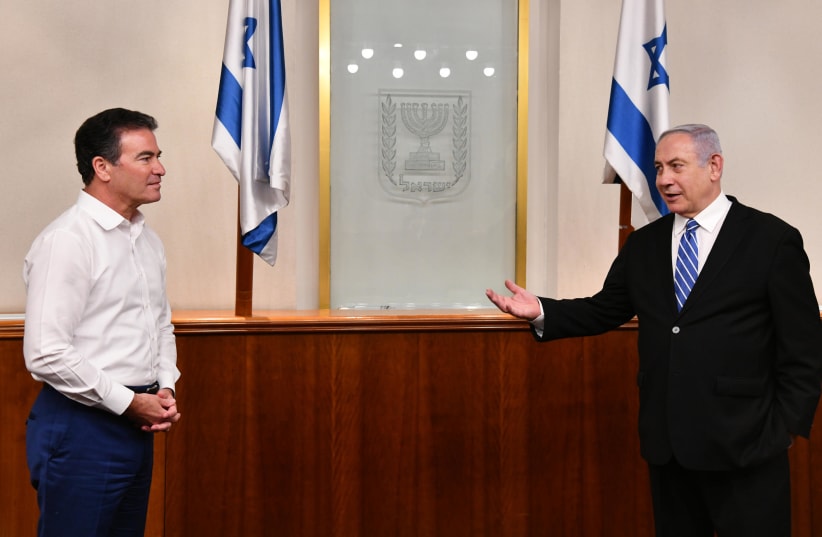Former Mossad head Yossi Cohen spoke to Channel 12 on Thursday and revealed new details of the Mossad operation to steal Iran's nuclear archive, while arguing that his personal connection to Prime Minister Benjamin Netanyahu helped Israel.
Cohen spoke about the Mossad operation to steal the Iranian nuclear archive that was later revealed by Netanyahu in a dramatic presentation. The operation, according to Cohen, was conducted over a period of two years and included some 20 agents, none of whom were Israelis.
Prior to the operation, Mossad built an exact replica of the building storing the documents in Iran, where agents trained for the operation.
"We understood the internal structure of the site, and the order of the containers," Cohen noted. The former Mossad head said that the operation almost did not go forward, following "developments in the area."
"We defined that we have seven hours to perform [the operation]... In the morning, trucks, guards, and workers arrive, and there's a crowd and you can't just jump over fences and break through walls," Cohen described. "Only when they broke into the formidable safes and began to go through the images and Farsi descriptions, did we realize that we have what we wanted on the Iranian military nuclear program."
After successfully obtaining the documents, Cohen informed Netanyahu that the first part of the operation was complete.
"I informed him that the first part of the operation has been completed, [and that] now we are bringing it home." The agents were able to transfer the files digitally while on the move toward the border (which was not specified).
On April 30, 2018, three months after the operation, Netanyahu convened a press conference, conducted in English, in which he revealed the cache of documents taken by Mossad, which included some 100 CDs and binders with thousands of documents on the nuclear program.
Netanyahu's public exposure of the documents, Cohen said, drew harsh criticism toward the outgoing PM and himself.
"I do not remember who was the first to come up with the idea to reveal the operation. It does not matter at the moment if the idea came from the institution. From the moment the idea came up, I thought it was a wonderful idea," Cohen said. Nevertheless, Cohen claimed the final decision to reveal the find was not his.
"Obviously there was a discussion within the institution and none of the senior officials objected. The matter of exposing the intelligence, not the operation, had to happen as it happened, in my opinion."
The rationale behind revealing the find was based on sending a message to Iran that the Mossad is capable of infiltrating highly sensitive and secret locations in the country.
Cohen has been known to accompany Netanyahu on trips abroad, acting as a senior advisor, type of foreign minister and political envoy. This has drawn criticism that he has damaged the independence and political neutrality of the Mossad.
"The very beneficial relationship of trust between me and the Prime Minister is beneficial both for operations from the institution, and also for the development of the institution, but I know personally that I pay a price for it," Cohen remarked.
Responding to the criticism, Cohen said that "If you were to see the heated arguments [with the prime minister] in which I [find] myself, should prove that I stand my ground, because I stand my ground... I do not work for the prime minister."
Cohen also denied that the Mossad deliberately organized a meeting with leaders in the United Arab Emirates a week prior to the March 2021 election in Israel as means for boosting support for Netanyahu.
Cohen further remarked on another topic, Gaza, and the transferring of Qatari money to Hamas leaders.
"I made a mistake in transferring Qatari money to the Gaza Strip," Cohen said. He changed his mind following the recent flare-up in hostilities between Hamas and Israel in May.
"I admit that I wholeheartedly believed that the people of the Gaza Strip would get used to a little more comfort that would greatly improve their civilian system, [and] not be used for military purposes. I thought their lives would be better and motivations for crises and wars diminished. And I was probably wrong. I was wrong," Cohen admitted. This article was originally published in Hebrew by Maariv and was translated to English by Cody Levine and Tobias Siegal.
